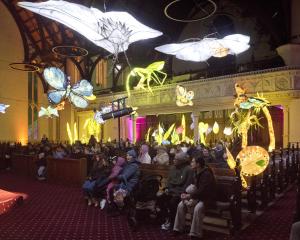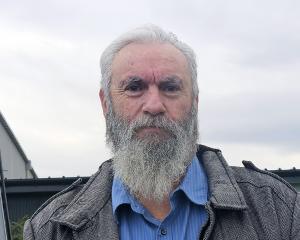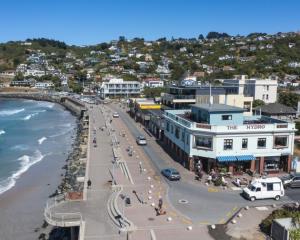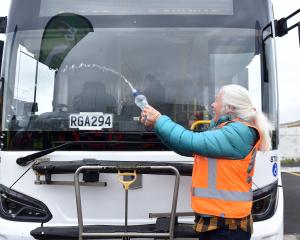
The national state housing agency has said it was cutting some of its planned projects, including 10 in Dunedin which would have created 120 new homes.
The move angered Cr Carmen Houlahan, who called on Ka ¯inga Ora to become more active, not less, in the community.
‘‘Every time government pulls funding and projects in our city pressure goes on the city council to fill the gap.
‘‘We haven’t got the funds to fill these gaps. The government needs to step up and do its bit.’’

‘‘It’s not our core business to have social housing — it’s the government’s.’’
The council was regularly questioned on what it was doing for the homeless, she said.
‘‘This move by the government to cut these housing projects will hit the most vulnerable in our city and will inevitably see more homeless. It is not on.’’ Cr Sophie Barker agreed.
‘‘Councils can’t be expected to step in, housing is a central government role, and they shouldn’t wiggle out of their responsibilities.’’
She said there was a cognitive dissonance in the approach because ‘‘too much extra work had been given to councils as unfunded mandates, yet government tells councils to stick to the basics’’.
Cr Andrew Whiley said Kāinga Ora’s decision disappointed him, but ‘‘the government must have its reasons’’.
‘‘Essentially, that’s a central government decision, not local government.
‘‘But we continue to lobby and do whatever we can to get more social housing built in the city.’’
Cr Whiley said he had advocated for the council to put its social housing portfolio into the ownership of a not-for-profit trust.
‘‘Social housing should not be a political decision. It should be something that we get on and do as a country.
Cr Steve Walker said Kāinga Ora’s decision had created a ‘‘perfect storm’’ which would increase homelessness in the city.
He was particularly disappointed the Albertson Ave project did not go ahead.
‘‘I find it wholly depressing looking at the barren space on Albertson Ave in Port Chalmers. It’s heartbreaking.
‘‘They knocked down perfectly functional houses to replace them with 11 new units. Now we have nothing.’’
It would have been more logical to have ‘‘left the existing houses until rebuild contracts were signed and set in stone’’.
‘‘Now we have a huge, functionless empty space with no promise of development any time in the foreseeable future — they literally eliminated existing housing that could have provided temporary homes for those living in tents at the Oval.’’
Asked about the undeveloped sites, Kāinga Ora spokeswoman said ‘‘in most cases we are still assessing options for the sites’’.
‘‘We may look to rework plans for a site or sell it. For some sites we may need to wait for future decisions as part of our renewals programme.
‘‘The projects that are not proceeding were generally in the early planning, design or consenting stages. Projects that were already contracted are still going ahead.’’
More than $6 million was written down as a result of Kāinga Ora abandoning the 10 Dunedin projects.
‘‘The money being written down represents the sunk costs spent on these projects during their initial scoping and planning phases and mainly relates to professional fees.
‘‘These costs are typical across the wider construction sector in the early stages of a project.’’
Kāinga Ora chief executive Matt Crockett has said nationwide 254 projects would still go ahead, while 212 would be axed.
The axed projects could ‘‘no longer stack up financially or are not in the right locations’’, he said.
There were 10 Ka ¯inga Ora projects in Dunedin that remained on the list and were planned to be completed by the end of next year.












